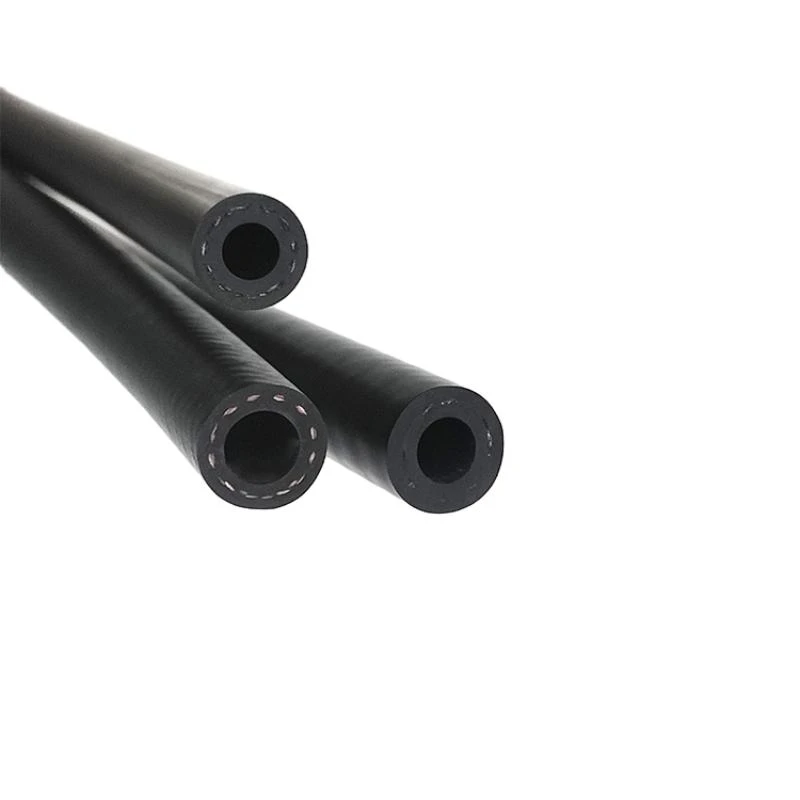Fuel Hose for Efficient Intake and Optimal Engine Performance
lis . 30, 2024 16:12 Back to list
Fuel Hose for Efficient Intake and Optimal Engine Performance
Understanding Fuel Intake Hoses Essential Components of Engine Functionality
Fuel intake hoses play a critical role in the functioning of vehicles and machinery powered by internal combustion engines. These hoses are responsible for delivering fuel from the tank to the engine, where it is mixed with air and combusted to produce power. Given their importance, understanding fuel intake hoses—how they work, their materials, maintenance, and common issues—can significantly benefit vehicle owners and mechanics alike.
The Functionality of Fuel Intake Hoses
Fuel intake hoses are designed to withstand high pressure and corrosive environments. They transport fuel, whether gasoline, diesel, or alternative fuels, from the fuel tank to the engine's fuel injection system. The fuel moves through the hose due to the suction created by the fuel pump, which drives the fuel into the engine. The efficiency and reliability of this process are vital for optimal engine performance, making the integrity of fuel intake hoses essential.
Materials and Construction
Typically, fuel intake hoses are made from materials resistant to heat, pressure, and chemical degradation. Common materials include rubber, nylon, and fluoroplastics, each chosen for their ability to withstand the harsh conditions found in engine compartments. High-quality hoses are often reinforced with fabrics or spiral winding to prevent collapse under high pressure. It is also common for hoses to be lined with materials like nitrile to resist fuel permeation, ensuring that harmful substances do not escape and contaminate the environment.
Importance of Maintenance
Like all vehicle components, fuel intake hoses require regular inspection and maintenance to ensure they remain in good condition. Over time, exposure to fuel, heat, and mechanical stress can lead to wear and tear. It is crucial for vehicle owners to periodically check for signs of deterioration, such as cracks, brittle sections, and leaks. Preventative maintenance is key; replacing worn hoses before they fail can prevent costly repairs and ensure safety.
Common Issues with Fuel Intake Hoses
fuel intake hose

Several issues can arise with fuel intake hoses. One of the most common is fuel leakage, which can occur due to a compromised hose structure. A leaking hose not only reduces fuel efficiency but can also pose a significant fire hazard. Signs of a fuel leak include the smell of gasoline, puddles under the vehicle, and noticeable drops in fuel levels.
Another issue is hose collapse, which can happen if the hose is improperly installed or if the fuel pump fails to maintain adequate pressure. A collapsed hose restricts fuel flow, leading to performance issues such as engine sputtering or stalling. Routine inspections can help identify these problems early, allowing for timely repairs and replacements.
Choosing the Right Fuel Intake Hose
When it comes time to replace a fuel intake hose, it’s vital to choose the right one for your vehicle's specifications. Different vehicles may require hoses with varying lengths, diameters, and material specifications. Consulting the vehicle's manual or working with a knowledgeable mechanic can aid in selecting the correct hose, ensuring compatibility and reliability.
Additionally, it’s worth noting that while some vehicle owners may be tempted to opt for cheaper, generic hoses, investing in high-quality, OEM (Original Equipment Manufacturer) hoses can yield better long-term results. These hoses are often designed to meet the manufacturer's specifications, providing a better fit and enhanced performance.
Conclusion
Fuel intake hoses may seem like minor components in the grand scheme of automotive functionality, but their role is undeniably significant. They ensure that fuel flows efficiently from the tank to the engine, affecting everything from power output to fuel economy. By understanding the importance of these hoses, the materials from which they are made, and how to maintain them, vehicle owners can take proactive steps to protect their engines and enhance their overall driving experience.
By prioritizing regular inspections and choosing quality replacements, we can ensure the longevity and efficiency of fuel intake hoses, contributing to the overall reliability of our vehicles. Whether you’re a seasoned mechanic or a DIY enthusiast, recognizing the value of these essential components can lead to a more informed approach to vehicle maintenance.
